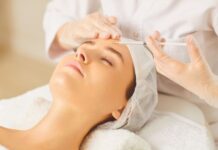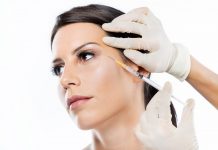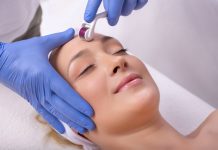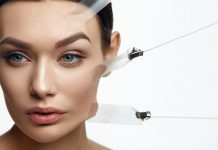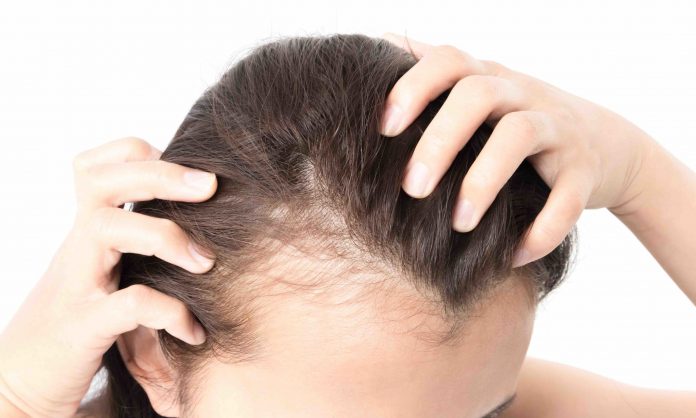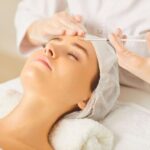Having beautiful hair makes women confident. The time and effort they put into it is a sign of their love for their own body and appearance. So when hair starts falling out, you can just imagine how dreadful it would be for them.
Hair loss can suddenly happen, and this may leave you wondering what caused it. Learn the underlying causes and help your body recover to regain regrowth of hair and get that beautiful and lush hair back!
Why are hormones important?
Hormones are secreted by the endocrine glands and serve as the chemical messengers in the body. They pass through the bloodstream to organs and tissues and control the most major bodily functions. Little imbalance in the hormones can lead to big changes in the body, just like male and female hair loss.
Women experience hair loss during pregnancy and menopause because of the fluctuations in hormones during these stages. Chronic stress may also worsen hormonal imbalance which makes the hair skip the growth stage and instead, pushes it into the shedding stage.
Types of Hormonal Imbalances that Lead to Hair Loss in Women
Several hormonal imbalances significantly affect the hair cycle. Understanding the causes of your hair loss is the first step to better treat them with lifestyle changes and several treatments.
Troubles with Testosterone
Testosterone is suitable for men because its what makes them bulky, hairy and big. But too much testosterone in women does not offer pretty results. This increases hair growth in women on the neck, chest, and face, and causes hair loss on the head.
The main culprit here is dihydrotestosterone (DHT), which is a more potent form of testosterone. It weakens hair follicles which leads to hair thinning. High levels of testosterone and DHT definitely plays a significant role in hair loss in women.
Excess Estrogen
Estrogen is produced by a woman’s ovaries. It has few key roles which are: prevents depression, controls height, reduces body hair, reduces muscle mass, regulates the menstrual cycle, and promotes hair growth. This hormone is essential to a woman’s physical and emotional well-being. Throughout your life, estrogen levels will tend to rise and fall. Increased estrogen level boost hair growth, while on the other hand, drops in estrogen levels causes hair loss.
A woman can experience hair thinning during menopause because there is a decline in estrogen. During menopause, hair on the head experiences thinning while hair grows on undesirable places like on the face. While during pregnancy, estrogen levels tend to peak and suddenly dip which causes hair loss.
Despite estrogen being the power player in women, too much of this hormone can cause hair troubles just like with too much testosterone. Too much estrogen can be caused by endocrine disruptors, perimenopause, or weight gain.
Insulin Imbalances
Insulin is what our body uses as energy. We get it from food which is converted by the body to utilize as energy. Eating too many high-glycemic foods partnered with a sedentary lifestyle can cause an insulin overload in the body. Too much of this causes confusion around the ovulation process which signals the ovaries to produce more testosterone. And as mentioned earlier, too much testosterone leads to hair loss.
Insulin resistance is a common health problem which happens when a person has too much insulin in the bloodstream. Women with insulin resistance tend to have more weight around the torso, suffer from acne, have excess facial hair, and is prone to PCOS. Due to the increased insulin levels, this pushes the production of testosterone which leads to hair loss.
Low Thyroid Function
The thyroid gland is responsible for regulating the body’s energy use. This gland releases thyroid hormones which maintain optimal bodily functions which include hair growth. When the thyroid is under stress, it becomes dependent on vitamins and nutrients to function well. When this happens, it focuses on supporting the body processes that sustain life such as regulating heart rate and breathing – it then stops paying attention to less important functions, and yes, that includes hair growth.
Scalp hair loss can also be caused by thyroid gland conditions. Autoimmune diseases usually cause thyroid conditions – the inflammation in the autoimmune disease can trigger hair loss. This is why it’s important to keep thyroid hormone levels balanced.
Polycystic Ovary Syndrome
PCOS happens when small cysts form in the ovaries. Common symptoms are fatigue, increased facial hair, and weight gain. This condition causes hormone imbalances which trigger the ovaries to produce testosterone more than usual. And yet again, this is another situation which causes too much testosterone and leads to hair loss. Thinning of scalp hair in women, acne, oily skin, and excess facial hair are just some of the negative effects of excessively produced testosterone in women.
PCOS can also cause hyperandrogenism – this is when the body produces too many androgens (male hormones). If a women’s hair follicles are sensitive to androgens, they can decrease the hair growth on the scalp and encourage hair growth on the body instead. Androgen sensitivity can be genetically inherited.
Hair loss caused by PCOS may be tricky. A visit from the doctor is best, so they can fully evaluate your condition. The usual treatments are taken orally or by applying topical solutions such as Minoxidil.
How to Combat Hormonal Hair Loss?
Lifestyle Changes
Starting with your diet, be sure to include protein-rich foods, iron, fatty acids, and Vitamins D and E. It is also advisable to get moving and exercise to help balance your hormones. Yoga can give you two benefits: it serves as an exercise and meditation which reduces stress levels. Be sure to get sufficient sleep as being sleep deprived can worsen stress and cause more hair loss problems.
Correct Nutrient Deficiencies
Your hair needs its proper dose of vitamins and minerals in order to grow properly. Some of the essential vitamins and minerals worth taking note of are:
- Omega 3 Fatty Acids: This allows healthier growth of the hair follicles and keeps the hair shiny
- Zinc: Helps with the speedy recovery of damaged hair
- Vitamin B: Known to regulate blood flow to the scalp which encourages hair growth
- Vitamin D3: Helps maintain hormonal balance and is critical for the immune system and thyroid function
- Vitamins A and C: Help with the production of collagen for stronger hair
- Vitamin 3: Reduces damage by protecting the hair cells from free radicals
Hair Transplant Procedures
Many women who experience hair loss also feel negative about themselves and lose confidence. Not liking what you see may lead to anxiety, stress, and even depression. The good news is, if you’re experiencing hair loss due to hormone imbalance, you might want to consider hair transplant solutions.
Effective treatments such as FUE Hair Transplant, Robotic FUE Hair Transplant, and Regenera Activa are permanent solutions for hair loss. These hair transplant procedures increase hair density on a bald scalp and allow your regenerative cells to stimulate surrounding areas that are starting to lose hair. They usually require minimal downtime and effects are seen in just a month.
Learn more about these treatments here to help you with hair loss problems.
In Conclusion…
Hair loss can cause serious stress! While you can’t have total control over your genes and balancing of hormones, you can still fight their negative effects on your hair.
But before anything else, it’s still important to address the root cause of your condition – this is why seeking advice from a doctor is best. They can give you a full evaluation and determine if its really your hormones that are causing your hair loss.
You Can Also Read : Herbs And Spices That Promote Hair Growth



